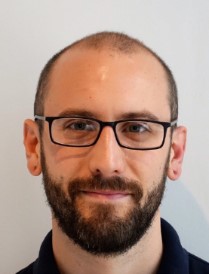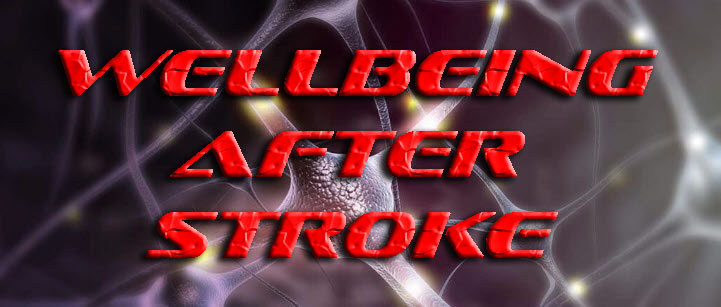Well-being may be adversely affected following stroke. Approximately 33% report depressive symptoms and 20% report anxiety during the first months or years and general psychological distress and social isolation amongst other factors are prevalent. So, what can be done about this? If you’re a stroke survivor, how can you help yourself to regain well-being, and what exactly is it anyway?

 A study being completed by Tom Oliani as part of his doctorate in Clinical Psychology at the University of Sheffield concerns well-being after stroke.
A study being completed by Tom Oliani as part of his doctorate in Clinical Psychology at the University of Sheffield concerns well-being after stroke.
Well-being is basically a combination of how satisfied a person is with their life, and how positive or negative they generally feel. People who have had a stroke can experience decreases in their general well-being. Evidence suggests that people in the general population who report more psychological flexibility and ‘self-compassion’, also often report an increased in well-being. However, there is not much research about whether this is the case for people who have had a stroke.
As such, Tom’s study aims to investigate if those stroke survivors who have do show higher levels of psychological flexibility and ‘self-compassion’ ALSO prove to report feeling more positive towards their circumstances and rehabilitation/recovery than those who report a lesser degree of self-compassion or psychological flexibility. And whether this traits and states change depending on how severe their stroke was and the recovery they make.

Do consider helping Tom with his study if you’ve had a stroke, or know someone who has! It won’t take a few moments…
Can I take part?
You can take part if:
- You have experienced a stroke or multiple strokes.
- You are an English speaker.
- You are over 18 years of age.
- You do not have difficulty reading or understanding words.
- You are not currently either in hospital or living as an inpatient in a residential service.
What will I have to do?

You will be asked to complete an online questionnaire about your stroke, thinking styles, and well-being. This will take 15-20 minutes.
You can find more information about the study by clicking this link: Well-being after stroke study
Then just email Tom at t.oliani@sheffield.ac.uk




One Comment
I am 71, female, and had a stroke 17yrs ago. I lay on the floor for 28hrs, then an indeterminate time on the ambulance, going through A/E, then into a bed, when I awoke my daughter asked me something, I answered her, and she told me later she didn’t understand a word I said. I stayed in hospital for 3 weeks, not getting much better, then I went to my sister-in-law, who was a nurse. I had, and paid for, a Physio, OT, speech therapist, and by the time I left, 5weeks, I could walkabout 4/5 feet, then collapsing, my speech went up from 25% to about 70%. I tried to put my feet on the stairs, and I remember thinking I’d never walk up stairs again. I next went to Wolfson, and they were brilliant, I stayed for the full 3mnths, and at the end of that, I could walk about 25ft, I did art, they taught me to cook a bit, to iron, etc. When I was taken for walks by my physio for 6 weeks,she asked me what I would do and I said Art, and could I do Pilates – she said “oh no” and I said to myself “You wait”. The following g day I went and signed up for Art & Pilates! I broke my arm a year later, was taken by ambulance to Kingston again, and the radiographer said “you’ve broken your arm before” and the only time I might have broken was when I had a Stroke! I was showed how to go up an escalator. I went on to do Pilates twice a week for 13yrs, I went to INS once a week, while there I stood up in front of St George’s students and told them about my journey, and told them about my broken arm, so that they could think about it, and remember it! Then I moved here to Lynwood Village, and have a pool, and I tried to swim on my back with our trainer, and I did it, I couldn’t believe it – so when it’s open, I swim for an hour three times a week! I do Art, I used to go to the cinema and to see the theatre there, the real theatre, we have outings, I do sewing up of the squares to make blankets, do things here and just enjoy everything! I have always lived on my own, once the children have flown, been seeing them, and going to Denmark to see one daughter & family, been on a cruise, been to fly to Barbados. And I am one handed, my left hand which I had to learn to write again, and my right leg is a little iffy, but I just soldier on, and I enjoy everything, for 17yrs!!! My children tell me I’m dogged, I think I’m just cantankerous!!!